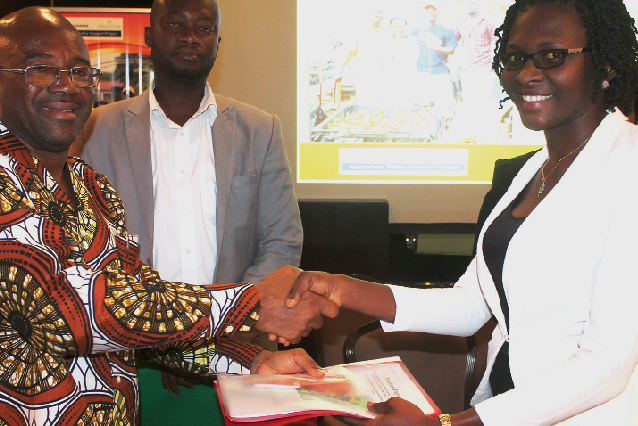
Project advocates fund to support youth in agriculture
Ghana needs a Youth in Agriculture fund to serve as an incentive to clear the bottlenecks by access to finance of the youth who wish to go into agriculture.
The fund can be supported through additional taxes on all food imports that can be produced in Ghana.
This and other recommendations, including developing a land policy/land bank system so that Ghanaian youth can have access to leased land, credit/financial schemes targeting youth in the agricultural sector and explicit targeting of youth in agriculture policies, are part of a United States Agency for International Development (USAID)-funded Agricultural Policy Support Project (APSP) to improve on policy and youth participation in agriculture.
It is an initiative to analyse the challenges and opportunities for mainstreaming gender and youth in the country’s agriculture and develop innovative approaches and recommendations for rural and urban youth in the agricultural value chain.
A position paper on the project containing the findings was presented to the Deputy Minister of Food and Agriculture in charge of Crops, Dr Ahmed Alhassan Yakubu, at a forum held in Accra.
The forum was organised to share the outcome of a three-month regional dialogue that took place among public and private actors to contextualise issues on "Improving Approaches to Mainstreaming Gender in Ghana's Youth Policy and Youth in Agriculture Programme: Focus on Climate Smart Agriculture and Market-oriented Value Chains".
Led by Syecomp Ghana Limited, a private agricultural research company and Federation of Young Farmers’, the project is part of Feed the Future— the US government’s hunger and food security initiative which is aimed at combating hunger, under-nutrition and poverty and currently operates mainly in the three northern regions.
The purpose of the position paper is to advocate support for youth in agriculture.
Be entrepreneurial
Speaking at the programme, Dr Yakubu said the country’s policy on agriculture was not to help people find jobs but rather for the youth to create jobs and employ.
He said what the country needed now was not replicating research in problems that already existed but rather investment in the solutions required to curb the challenges in the agriculture sector.
The deputy minister urged young people interested in agriculture to choose entrepreneurial ventures in the sector that involved high value commodities that would yield good return on their investments.
Too much import
The Chief of Party of the APSP, Mr Walter Nunez-Rodriguez, observed that the country was importing too much of what it could produce.
He said instead of waiting for the government to create jobs, Ghanaian youth should take advantage of the numerous opportunities that existed in the agriculture sector.
The Project Lead for the initiative, Mr Solomon E. Allavi, observed that youth unemployment continued to rise partially due to the skills-mismatch in the labour market among university graduates, adding that the youth possessed limited knowledge, skills and lacked financial resources to effectively participate in the agriculture sector.
Reducing poverty
To address the gap and reduce poverty in Ghana, he said, “there is the need to establish a support system that guarantees young graduates and non-graduates exposure and participation in agricultural investment and self-employment in rural, peri-urban and urban areas.”
